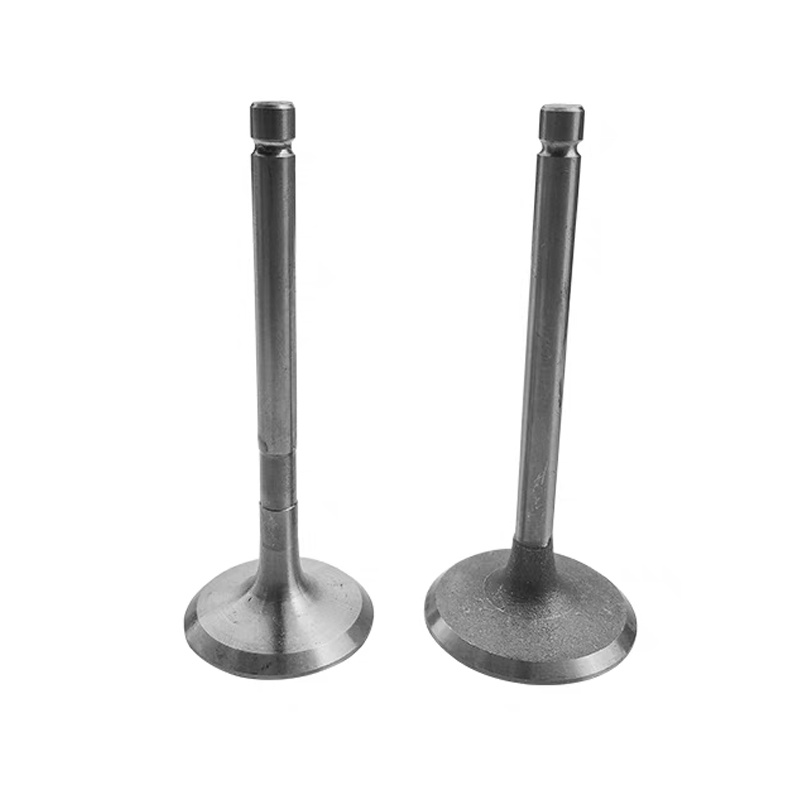The Impact of Globalization on Machinery Components Production: Navigating a New Era
Sep 12,2025
The Impact of Globalization on Machinery Components Production
Globalization has drastically altered the landscape of industries worldwide, particularly in the sector of machinery components production. The interconnectedness of markets and advancements in technology have placed unprecedented pressures and opportunities on manufacturers, suppliers, and distributors. This article explores the multi

The Impact of Globalization on Machinery Components Production
Globalization has drastically altered the landscape of industries worldwide, particularly in the sector of machinery components production. The interconnectedness of markets and advancements in technology have placed unprecedented pressures and opportunities on manufacturers, suppliers, and distributors. This article explores the multifaceted impact of globalization on the production of machinery components, examining both the benefits and challenges that arise within this dynamic environment.
Table of Contents
1. Understanding Globalization in the Machinery Components Industry
2. The Role of Technology in Global Machinery Production
3. Supply Chain Dynamics: A Global Perspective
4. The Advantages of Globalization for Machinery Component Manufacturers
5. Challenges Faced by Machinery Components Producers in a Global Market
6. Strategies for Success in a Globalized Machinery Components Sector
7. The Future of Global Machinery Components Production
8. FAQs about Globalization and Machinery Components Production
9. Conclusion: Embracing the Global Landscape
1. Understanding Globalization in the Machinery Components Industry
Globalization refers to the process by which businesses or other organizations develop international influence or operate on an international scale. In the machinery components sector, this integration has led to a dramatic shift in how production is approached. Companies are no longer restricted to local markets; they can source materials, labor, and technology globally.
This shift has resulted in a more competitive environment, where organizations must adapt to varying standards, regulations, and consumer expectations. Understanding these dynamics is crucial for companies aiming to maintain relevance and profitability in the global marketplace.
2. The Role of Technology in Global Machinery Production
Technological advancements are at the forefront of globalization in machinery production. The rise of automation, artificial intelligence, and the Internet of Things (IoT) has revolutionized production processes. These technologies enhance efficiency, reduce costs, and improve product quality.
Additionally, technologies such as 3D printing and digital manufacturing have enabled companies to produce components closer to their end markets, reducing lead times and transportation costs. This evolution highlights the importance of investing in technology to remain competitive in a globalized world.
3. Supply Chain Dynamics: A Global Perspective
The globalization of supply chains has transformed how machinery components are produced and distributed. Manufacturers can now source raw materials from different parts of the world, leading to cost savings and access to higher-quality inputs. However, this also introduces complexity in managing logistics and supplier relationships.
Maintaining a reliable supply chain requires robust risk management strategies to address potential disruptions, such as geopolitical tensions, natural disasters, or pandemics. Companies must be agile and responsive to change, employing technologies that provide real-time visibility into their supply chain operations.
4. The Advantages of Globalization for Machinery Component Manufacturers
Globalization offers several advantages for machinery component manufacturers, including:
- **Access to New Markets:** Expanding into international markets allows companies to increase their customer base and diversify their revenue streams.
- **Cost Reduction:** By sourcing materials and labor from countries with lower costs, manufacturers can enhance their profit margins.
- **Improved Innovation:** Collaboration across borders fosters innovation as companies leverage diverse perspectives and expertise.
- **Enhanced Competitiveness:** Operating on a global scale allows manufacturers to compete more effectively against local and international players.
Embracing these advantages can significantly contribute to a company's long-term success in the machinery components industry.
5. Challenges Faced by Machinery Components Producers in a Global Market
While globalization presents numerous opportunities, it also poses significant challenges. Some of the primary challenges include:
- **Regulatory Compliance:** Navigating the complex regulations of different countries can be daunting and requires dedicated resources.
- **Cultural Differences:** Understanding and adapting to diverse cultural norms is critical for successful international operations.
- **Supply Chain Vulnerabilities:** Global supply chains are susceptible to disruptions, which can lead to delays and increased costs.
- **Intellectual Property Risks:** Operating internationally raises concerns about protecting intellectual property in different jurisdictions.
Addressing these challenges is essential for manufacturers to succeed in the global marketplace.
6. Strategies for Success in a Globalized Machinery Components Sector
To thrive in the global machinery components industry, companies should consider implementing the following strategies:
- **Invest in Technology:** Leveraging advanced technologies can streamline operations and improve competitiveness.
- **Develop Strategic Partnerships:** Collaborating with local suppliers and distributors can enhance market entry and navigation.
- **Focus on Sustainability:** Adopting sustainable practices can attract environmentally conscious consumers and comply with regulations.
- **Enhance Supply Chain Resilience:** Building a flexible and adaptive supply chain will mitigate risks associated with globalization.
By adopting these strategies, manufacturers can position themselves for success amid the complexities of global operations.
7. The Future of Global Machinery Components Production
The future of machinery components production in a globalized world is promising yet challenging. As technology continues to evolve, manufacturers must remain agile and embrace innovation. The focus will likely shift toward sustainability and smart manufacturing practices, integrating more data-driven decision-making processes.
Moreover, as geopolitical tensions rise, companies may need to reconsider their supply chain strategies, focusing on diversifying suppliers and localizing certain aspects of production to mitigate risks.
8. FAQs about Globalization and Machinery Components Production
What is globalization in the context of machinery components production?
Globalization in machinery components production refers to the integration of international markets and supply chains, allowing companies to source materials, labor, and technology globally.
How does technology impact machinery components production?
Technology improves efficiency, reduces costs, and enhances product quality in machinery components production through automation, AI, IoT, and digital manufacturing.
What are the main challenges of globalization for machinery manufacturers?
Challenges include regulatory compliance, cultural differences, supply chain vulnerabilities, and intellectual property risks.
How can companies achieve success in a globalized machinery market?
Success can be achieved by investing in technology, developing strategic partnerships, focusing on sustainability, and enhancing supply chain resilience.
What is the future outlook for machinery components production?
The future will likely focus on sustainability and smart manufacturing, necessitating agility and innovation in response to evolving market conditions.
9. Conclusion: Embracing the Global Landscape
Globalization has fundamentally transformed the production of machinery components, presenting both challenges and opportunities. Companies that adapt to this new landscape by leveraging technology, enhancing supply chain resilience, and focusing on sustainable practices will thrive. By understanding the dynamics of the global market, manufacturers can not only survive but also excel in an ever-changing environment. The journey ahead may be complex, but with the right strategies, the possibilities for growth are limitless.
TAG:
Recent News
Mastering Agricultural Machinery: A Deep Dive into Engine Speed Control Shaft Mechanics
Mastering Agricultural Machinery: Understanding Engine Speed Control Shaft
Table of Contents
1. Introduction to Engine Speed Control Shaft in Agricultural Machinery
2. Importance of Engine Speed Control Shaft in Agricultural Machinery
3. How Engine Speed Control Shaft Works
4. Types of Engine Speed Control Shafts
4.1. Mechanical Control Shafts
4.2. Electronic Control Shafts
5. Common Issues with E


